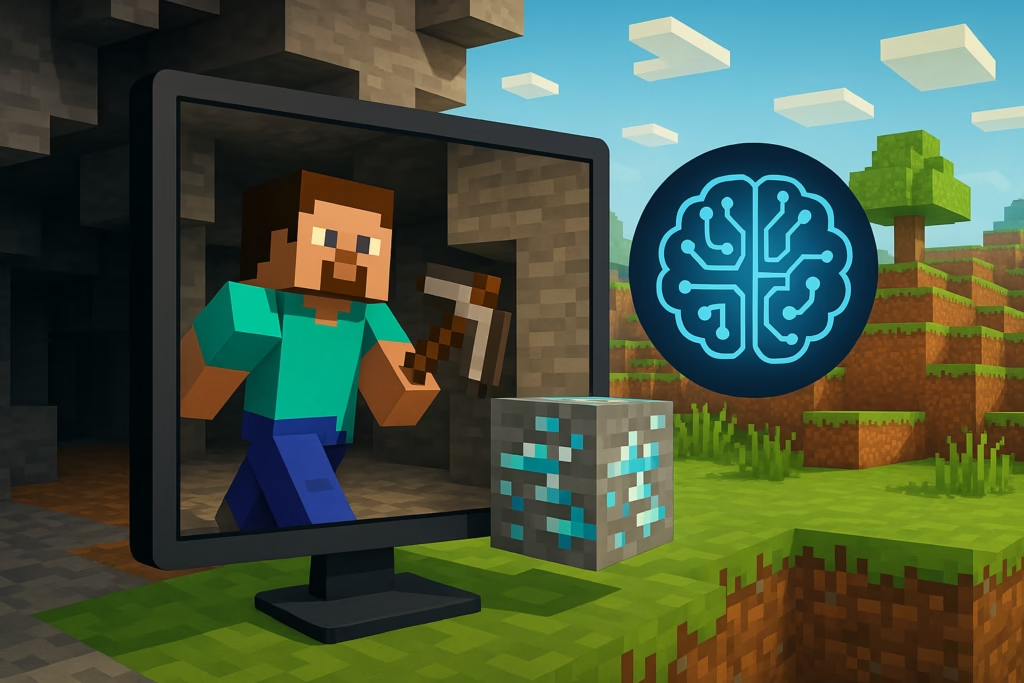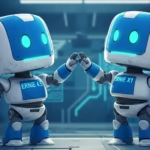Introduction
Imagine an AI so advanced that it can master Minecraft, a game that requires strategy, exploration, and survival instincts—without human guidance. c’s latest AI breakthrough showcases just that. Using reinforcement learning, DeepMind’s AI successfully mined diamonds in Minecraft, a task that even human players find challenging. This achievement highlights the immense potential of AI in complex problem-solving and autonomous learning.
In this article, we explore how DeepMind’s AI accomplished this feat, the technology behind it, and what it means for the future of AI-driven learning.

How DeepMind’s AI Mastered Minecraft
1. The Power of Reinforcement Learning
DeepMind leveraged reinforcement learning (RL), an AI training method where an agent learns through trial and error by receiving rewards for desirable actions. The AI was not explicitly programmed to mine diamonds; instead, it learned through experience.
Key steps in the learning process:
- Observation of human gameplay: AI studied thousands of hours of Minecraft gameplay from real players.
- Self-learning through reinforcement: It experimented with different strategies to reach goals.
- Reward-based optimization: The AI received in-game rewards when it made progress, encouraging it to refine its methods.
2. Using Imitation Learning to Enhance Performance
DeepMind integrated imitation learning, allowing the AI to mimic human behaviors observed in the gameplay dataset. This step accelerated learning and provided a more structured approach to decision-making.
3. Achieving the Ultimate Goal: Mining Diamonds
Mining diamonds in Minecraft is not straightforward. It requires players to:
- Craft essential tools (e.g., iron pickaxe).
- Locate deep caves or dig strategically.
- Avoid dangers such as lava and hostile mobs.
DeepMind’s AI learned all these steps without direct programming, showcasing its ability to independently navigate complex environments.
Why This Breakthrough Matters
1. AI Can Learn Without Explicit Programming
This experiment demonstrates that AI can acquire skills through observation and experience, much like humans do. Future AI models could learn tasks without predefined instructions, making them more adaptable and intelligent.
2. Advancing AI in Real-World Applications
Beyond gaming, this technology has significant real-world implications:
- Automation: AI could autonomously learn and optimize industrial processes.
- Robotics: Robots could develop problem-solving skills by observing human behavior.
- Healthcare: AI could enhance medical diagnosis by learning from past cases without direct programming.
3. Pushing the Limits of AI Learning Models
DeepMind’s experiment marks a milestone in AI self-learning, setting the stage for even more advanced systems that can understand and adapt to complex scenarios with minimal human intervention.
Future Prospects: What’s Next for AI in Gaming and Beyond?
- More immersive AI-driven games where AI learns from players and adapts dynamically.
- AI-enhanced virtual assistants capable of performing intricate tasks by learning from observations.
- Self-improving AI models that refine their capabilities over time, leading to breakthroughs in multiple industries.
Conclusion
DeepMind’s AI mastering Minecraft without human guidance is a testament to the power of reinforcement learning and artificial intelligence’s future potential. As AI continues to evolve, it may soon outperform humans in complex tasks, leading to exciting advancements in gaming, automation, and beyond.




